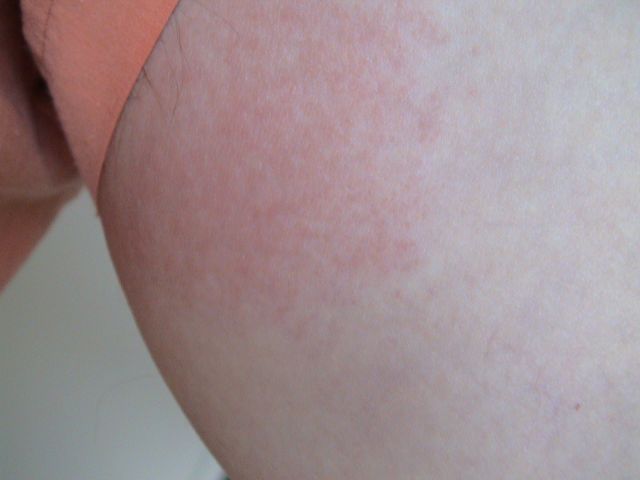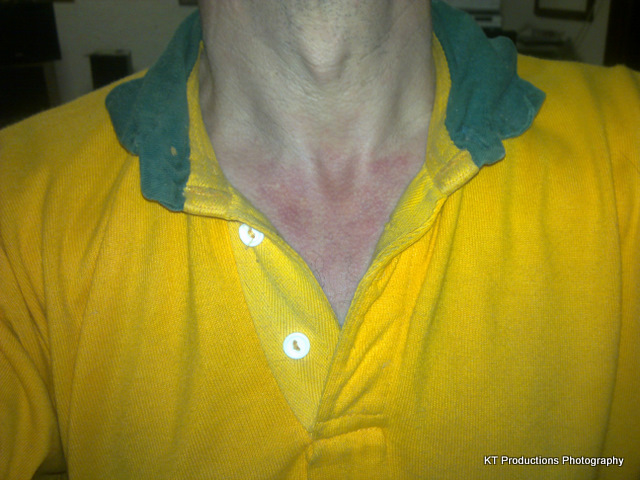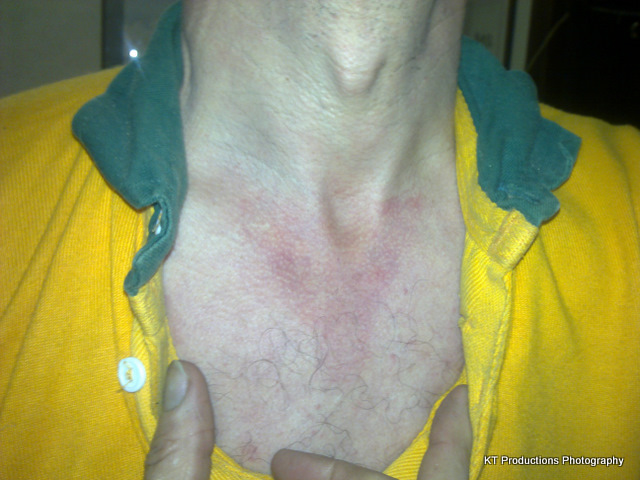Hi there, first new topic post so here goes.
I started at a new place of work around 3 years ago. My previous job mostly involved me making softwood windows ( with hardwood cills )
My new work gave me the chance to supply only hardwood windows (iroko) - thinking its alot more durable/longer lasting etc etc for the customer.
After around a year or so being there i started getting a rash all over my wrists and forehead. As days went by the rash's started getting more frequent and the itching became more and more annoying.
I started to get a little worried so went to the docs. He took blood test after blood test and all was clear. He referred me to see a dermatologist, who also done several tests all showing nothing out of the ordinary.
The dermatologist was unable to explain what was causing the reaction and i had no idea either what could be causing the problem. As it stands they have given me antihystamines to take to help with the itching.-This doesn't help me looking like i've walked through a stinging nettle bush though ! :lol:
The reason i'm posting is because i read some where on here about an allergic reaction to wood. (not to be confused with being allergic to work!)I then googled 'Iroko health dust' and have completely papped myself at what i have learnt about the risks of working with such wood.
We have extractors on every machine (admittedly,some work better than others) and didn't for a single second think the rash had anything to do with work.
What do you guys think? Am i clutching at straws trying to find a miracle answer. Seems odd the problems only started to happen a year or so after working with iroko on a daily basis.
All comments welcome, would be good to hear if anyone else has had any similar problems. Thanks.
I'm still trawling through all the pages and pages of useful info and ideas on this site. Need to learn how to bookmark certain threads instead of saving them all to my favorites folder !
At the moment i'm gagging to try the 'using the circular saw tipped over at 30 degrees to make a curved chest lid, similar to a thicknesser idea'- Phew. Cant thank the poster, it would take to long going through all the favorites i have saved.
I started at a new place of work around 3 years ago. My previous job mostly involved me making softwood windows ( with hardwood cills )
My new work gave me the chance to supply only hardwood windows (iroko) - thinking its alot more durable/longer lasting etc etc for the customer.
After around a year or so being there i started getting a rash all over my wrists and forehead. As days went by the rash's started getting more frequent and the itching became more and more annoying.
I started to get a little worried so went to the docs. He took blood test after blood test and all was clear. He referred me to see a dermatologist, who also done several tests all showing nothing out of the ordinary.
The dermatologist was unable to explain what was causing the reaction and i had no idea either what could be causing the problem. As it stands they have given me antihystamines to take to help with the itching.-This doesn't help me looking like i've walked through a stinging nettle bush though ! :lol:
The reason i'm posting is because i read some where on here about an allergic reaction to wood. (not to be confused with being allergic to work!)I then googled 'Iroko health dust' and have completely papped myself at what i have learnt about the risks of working with such wood.
We have extractors on every machine (admittedly,some work better than others) and didn't for a single second think the rash had anything to do with work.
What do you guys think? Am i clutching at straws trying to find a miracle answer. Seems odd the problems only started to happen a year or so after working with iroko on a daily basis.
All comments welcome, would be good to hear if anyone else has had any similar problems. Thanks.
I'm still trawling through all the pages and pages of useful info and ideas on this site. Need to learn how to bookmark certain threads instead of saving them all to my favorites folder !
At the moment i'm gagging to try the 'using the circular saw tipped over at 30 degrees to make a curved chest lid, similar to a thicknesser idea'- Phew. Cant thank the poster, it would take to long going through all the favorites i have saved.



































